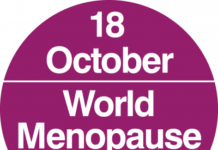Call for ‘support system’ for families whose lives are ‘severely affected’ by Covid-19
A new study by Cardiff University in collaboration with the University of Hertfordshire has revealed the huge “secondary burden” placed on those closest to people living with Long Covid.
The researchers surveyed more than 700 Covid-19 survivors along with their partners and close relatives to understand for the first time the impact of the disease on families as a whole.
The findings, published today in BMJ Open, suggest family quality of life is being “severely affected” and a major system of support is needed for both survivors – and those closest to them.
Survivors and their families spoke of the huge impact on their lives and backed calls for more support.
Billie-Jo Redman, 27, a mum from Essex, suffers from fatigue, brain fog and daily waves of pins and needles, and at times has such a high heart rate she has to wear a 24-hour heart monitor.
“My life feels like it’s over. I used to go on adventures with my son Roman – now I have days where I can’t even get him to school,” she said.
Lead author Rubina Shah, a PhD student at Cardiff University’s School of Medicine, said: “We have all seen the devastating impact Long Covid can have on survivors, but we have heard very little about how it can affect the lives of their nearest and dearest.
“Our study reveals a domino effect from the Covid patient themselves through to all those closest to them, affecting everything from how worried and frustrated they feel to their ability to enjoy family activities, or for partners the impact on their relationship and sex life.
“The impact of Covid can be profound and long lasting; there needs to be a holistic support system that is sensitive to the needs of both survivors and their families to help ease this burden.”
About one in five people have symptoms of Long Covid five weeks after an initial infection and one in seven after 12 weeks, according to the Office for National Statistics. In the four weeks from 6 February, 1.1 million people in the UK were estimated to be affected.
The researchers carried out the study because there was so little information about what families go through when a member has Long Covid. They say it is vital to assess this to help understand what support they might need.
A global online survey to measure impact was carried out last summer and was completed by 735 Covid-19 survivors around 12 weeks after diagnosis and by 571 partners and 164 family members.
The biggest impact was found to be on “feeling worried” (94%), followed by family activities (83%), feelings of frustration (82%), feeling sad (78%), sleep (69%) and sex life (68%). Two-thirds (66%) reported impact on holidays, and more than half (56%) reported an increase in family expenses.
There was a significant gender difference among family members, with females feeling more sad, experiencing more impact on everyday travel and on their sleep. Impact on sex life was experienced by significantly more men than women.
The researchers said the findings suggested policymakers should consider developing and commissioning a range of support services, including needs-based mental health counselling and local support groups.
‘Tragic effect on our lives’
Billie-Jo, who previously had no health issues, tested positive on 9 January with usual Covid symptoms. After 10 days she was fine but by the end of February she felt like she was “dying upon standing”.
She moved from London to Essex before the first lockdown so has little family support because they live too far away and feels her illness has had a huge impact on life with her son.
“The hospital just doesn’t know what to do with me. They can see my heart rate is way too high, but they don’t know why,” she said.
“Everything has changed. My life feels like it’s over. I used to go on adventures with my son Roman – now I have days where I can’t even get him to school. It’s had a tragic effect on our daily lives. There needs to be more support for families.”
Ms Shah said: “Our research is the first to look at the impact of this devastating disease on the partners and families of survivors.
“It is so important that we understand the needs of those closest to survivors to ensure the overall wellbeing of families.”
The researchers said future work was needed to measure the persistence of the impact on family members and to find out whether there are differences in family impact between ethnic groups.
Further research could also include assessing the impact of interventions, carrying out local studies to inform policy and practice in planning of local support services.
Help keep news FREE for our readers
Supporting your local community newspaper/online news outlet is crucial now more than ever. If you believe in independent journalism, then consider making a valuable contribution by making a one-time or monthly donation. We operate in rural areas where providing unbiased news can be challenging. Read More About Supporting The West Wales Chronicle























